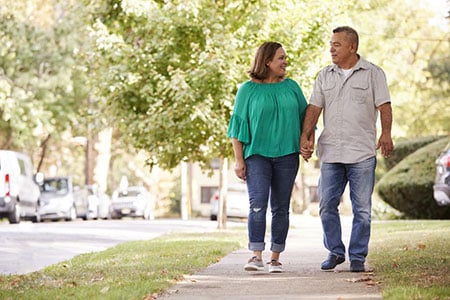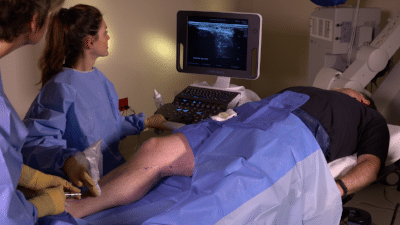
Vaginal Varicose Veins – Is that even a thing?
If you have even heard of vulvar varicosities, chances are it is because you have experienced them. And it is likely you had to work ridiculously hard to uncover any information about the topic. Varicose veins of the vulva and perineum just don’t get a whole lot of press. Commonly quoted estimates state that about 10 percent of women will experience vulvar varicosities during pregnancy, but it is possible that number is higher because some women just won’t talk about it.
And if you look at the rare online discussion about vaginal varicose veins, like JustMommies.com you will see that women who experience the symptoms of vulvar varicosities are completely surprised when it happens—because they had no idea such a thing could even happen.
Let’s change that!
Let’s get women the information they need to live more comfortable, more present lives. Let’s start talking about it. Let’s take it from being a thing to just being, you know, a thing. If we need to, let’s talk to our sisters, our girlfriends, our wives, our mothers. And, if you have any questions about this or any other vein issue, another great person to talk to is a qualified vein specialist.
Vulvar varicosities: But Why?!
Basically, it is possible to develop a varicosity in any part of the body. But there are a few reasons why your vulvar area can be susceptible.
- Gravity. Baby and placenta put a lot of pressure on the pelvic region, and this creates back pressure on the veins in the pelvic floor.
- Hormones. The pregnancy hormones that are circulating to prepare your pelvis for birth also make your veins—all of your veins—prone to distension. Estrogen, progesterone and relaxing all play a part.
- Mechanics. The venous valves that are designed to provide some protection against pooling of blood in lower regions occur less frequently the closer the vein is to the heart. In a small percentage of women, there are no venous valves in the vulvar area.
Some Good News About Vaginal Varicose Veins (and a Little Bad News-but Mostly Good)
Let’s start with the good...
- Good news—they are transient. Chances are good that they will go away once baby is born.
- Bad news—they are transient. If you get them once, vulvar varicosities will come back—and likely sooner—with each subsequent pregnancy. As well, with each pregnancy, there is an increasing chance that they will stay, even after the baby is born.
- Bad news—they could be a sign of more ominous things. It is possible that vulvar varicosities are a sign that you have developed, or are developing, Chronic Venous Insufficiency (CVI), especially if they appear with varicose veins in your legs. A qualified vein specialist can look at your veins and tell you if this is the case for you.
Here's the Really Good News
The really good news, though, is that if varicosities do appear during pregnancy, and don’t go away once baby is born, there are vulvar varicosity treatments available that can get you back to feeling like your old self with minimal fuss. A qualified vein specialist like Dr. Jilanne Rose from Advanced Vein Institute of Arizona (AVIA) will be happy to talk to you about your options. However, as she wants you to have the most successful experience possible, she will caution you about the timing of treatments.
“One thing to keep in mind is that if you are currently or recently pregnant, you will have to wait a bit before a vein specialist can treat you,” Dr. Rose says. “Birth will relieve much of the pressure on the area. However, your body will need some time—at least a few months—for hormone levels to return to normal and for your body to re-adjust. In the end, you might not even need treatment.”
While you wait, Jilanne has a few suggestions you can try to find some temporary relief from the symptoms of vulvar varicosities.
More good news: it is really easy to talk to Jilanne. Call the office or fill out this form if you would like to get a conversation started about whether vein treatment is what you need to get back to living more comfortably.
Question: I am 50 years old; a bachelor, and a teacher. Right now I have varicose veins (though they are not painful) in my right leg. I am not happy to see them. What can you suggest to lessen its visibility? Answer: Unfortunately, most conservative therapies are designed for symptomatic control and not necessarily appearance. Treatments…
Read MorePregunta: me lastimé el pie ayer a medio camino hacia los dedos de los pies. Tengo que volar en dos días. ¿Debo usar calcetines de vuelo? Mi pie está ligeramente hinchado. He estado descansando con el pie hacia arriba. Puedo caminar sobre ella. Duele un poco. El vuelo dura 7 horas.
Read MorePregunta: tengo trombosis venosa profunda (TVP) en mi pantorrilla derecha, sólo han pasado 3 semanas desde que me enteré. Mi pierna todavía se hincha después de 3 semanas, incluso cuando llevo mi media de compresión 20 -30. Es normal. ¿Debo quitarlo y elevar mi pierna o dejarla encendida?
Read MoreQuestion: I hurt my foot yesterday halfway towards the toes. I have to fly in 2 days. Should I wear flight socks? My foot is slightly swollen. I've been resting with the foot up. I can walk on it. It hurts a little bit. The flight is 7 hours long.
Read MoreQuestion: I have deep vein thrombosis (DVT) in my right calf, it has only been 3 weeks since I found out. My leg still swells after 3 weeks even when I wear my compression stocking 20 -30. Is this normal. Should I be take it off and elevate my leg or leave it on?
Read MorePregunta: Quiero saber que ejercicios funcionan mejor ya que mi tratamiento EVLT no me dio los buenos resultados que me esperaba.
Read MoreQuestion: I want to know which exercises work best since my EVLT treatment did not get me the good results that I expected. Answer: Ones ability to exercise, and the types of exercise a person can complete, varies greatly. Speaking in generalities, exercise that benefits lower extremity venous health does not have to be significantly…
Read MoreLa cirugía de la vena varicosa no es lo que solía ser Si usted ha escuchado — o experimentado — historias sobre la cirugía de eliminación de venas estándar que ocurrieron antes de la vuelta de este siglo, es comprensible si usted está preocupado acerca de la búsqueda de ayuda de un especialista en venas…
Read MoreVaricose vein surgery not what it used to be If you have heard-or experienced–stories about standard vein removal surgery that happened prior to the turn of this century, it is understandable if you are concerned about seeking help from a qualified vein specialist for your painful varicose veins. There was a time when leg vein…
Read MoreCalambres en las piernas Hay muchas razones para los calambres musculares. Mucha gente los experimenta debido a una deficiencia de ciertos elementos clave como el potasio y el magnesio. Otros, particularmente aquellos que viven en climas más cálidos como Arizona, experimentan calambres debido a la deshidratación. UN gran número de pacientes a los que consulto,…
Read More

